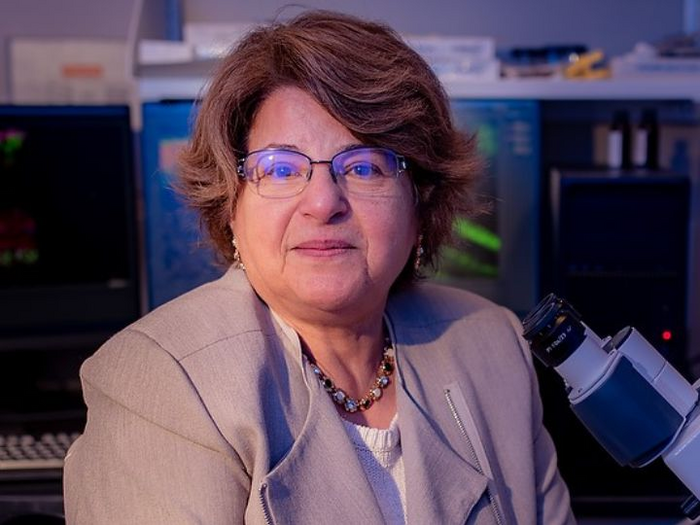A University of Houston researcher is expanding a method of gene therapy with the hopes it will restore vision loss in Usher Syndrome Type 2A (USH2A), a rare genetic disease. The National Eye Institute has awarded Muna Naash, John S. Dunn Endowed Professor of biomedical engineering, $1.6 million to support her work.

Credit: University of Houston
A University of Houston researcher is expanding a method of gene therapy with the hopes it will restore vision loss in Usher Syndrome Type 2A (USH2A), a rare genetic disease. The National Eye Institute has awarded Muna Naash, John S. Dunn Endowed Professor of biomedical engineering, $1.6 million to support her work.
Usher Syndrome Type 2A, caused by mutations of the USH2A gene, can include hearing loss from birth and progressive loss of vision, prompting retinitis pigmentosa (RP). RP affects the retina, the eye’s light-sensitive layer, leading to a breakdown of cells in the retina which causes blindness. Currently no treatment exists for USH2A.
“Our goal is to advance our current intravitreal gene therapy platform consisting of DNA nanoparticles/hyaluronic acid nanospheres to deliver large genes in order to develop safe and effective therapies for visual loss in Usher Syndrome Type 2A,” said Naash. Gene therapy is the introduction of a normal gene into cells to correct genetic disorders. Intravitreal treatment consists of injections directly into the vitreal chamber of the eye.
“Developing an effective treatment for USH2A has been challenging due to its large coding sequence (15.8 kb) that has precluded its delivery using standard approaches and the presence of multiple isoforms with functions that are not fully understood,” said Naash, who will also evaluate the long-term efficacy of the best therapeutic platform for future translation to the clinic.
To rescue vision loss, Naash’s non-viral therapy targets the mutation in usherin, the protein product that causes Usher Syndrome Type 2A. Naash has already cloned two usherin isoforms to be tested with her innovative platform to safely advance gene therapy for USH2A.
“Understanding which isoforms of usherin are expressed in the retina and the cochlea and what role they play (in contrast to mutant pathogenic forms) is essential in developing an effective gene therapy construct,” said Naash.
The work will provide a solid foundation for understanding the function of each usherin isoform and developing an effective gene therapy platform to treat USH2A associated visual defects, she said.




